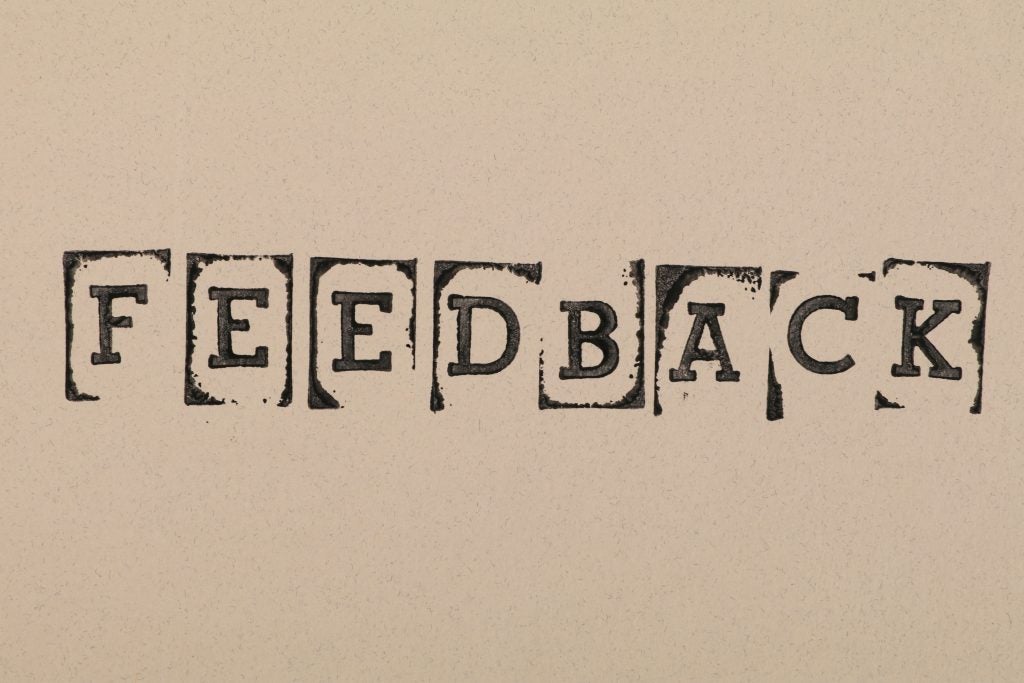Module 7: Communication (Part 5)
Constructive Criticism
Introduction
Objective: The student will list at least 3 concrete ways to respond to constructive criticism and turn it into a positive learning experience.Estimated time 30—45 minutes
Materials needed:
- Computer
- Word-processing or notebook paper
Curriculum Link:
This section corresponds with Module 7 Lesson 4 in the College Bound Transition curriculum resources.

Learn About It
According to Wikipedia, constructive criticism is the process of offering valid and well-reasoned opinions about the work of others, usually involving both positive and negative comments, in a friendly manner rather than an oppositional one. In collaborative work, this kind of criticism is often a valuable tool in raising and maintaining performance standards.
Notice some key elements to this definition:
- Valid and well-reasoned opinions
- Includes both positive and negative comments
- Friendly manner rather than an oppositional one
- Valuable tool in raising and maintaining performance standards.
While most of us don’t enjoy hearing ways in which we can improve, constructive criticism is designed to be positive and used for growth.
| Constructive Criticism | Destructive Criticism |
|---|---|
| Intends to educate | Intends to embarrass |
| Related to the work | Feels like a personal attack |
| Helps build on an idea | Tears down an idea |
| Makes the outcome better | Makes the person feel worse |
| Is intelligent and calculated | Includes rapid-fire and random responses |
| Comes along to help | Tries to take over |
Criticism Examples
Destructive Criticism
“This video is okay, but you should fix up the one part where the guy talks at the beginning. It looks kind of dumb and pointless.”
“What do you mean?”
“I don’t know, something about it looks stupid. Just take my advice and do something different with it!”
“It’s fine the way it is! Just let me work, okay?”
Constructive Criticism

“This video you finished looks great! Could I just give you some advice though?”
“Sure.”
“You should cut this one clip a little shorter. I think it goes on for too long and gets boring.”
[Working]
“Done. Yeah, it definitely looks smoother. Thanks for the tip.”
Communication Styles
Communication styles differ in high school and college
High school teachers’ criticisms
- Goals include increasing students’ self-esteem and correcting errors.
- They may be less direct when giving feedback or assessing work. College professors’ criticisms
- Goals are to correct errors and increase proficiency.
- They may be more direct or straightforward in giving feedback.
- They may not mention what was done well.
Communication styles are going to differ from high school to college. In high school, teachers are often less direct (or more gentle) than college professors in their assessment of students’ work. High school feedback might focus on encouraging the student and building the student’s self-esteem.
In college, professors do care about students’ feelings and self-esteem, but they may blend this concern with more direct assignment feedback. Their feedback is generally straightforward and direct, with the goal of correcting errors or problems with an assignment. They may not mention what the student did well. This does not mean that nothing was done well; it just was not the focus of the feedback. Professors may also be trying to push students to the “next level” of proficiency or ability, which means that even something that is done well may be given feedback on how to improve it even further.
Many college students are unprepared for this kind of feedback, and receiving it may create “culture shock.”
How to handle constructive criticism.
Tips on Constructive Criticism
Tips for processing constructive criticism
- Stop!
- Do not react or respond immediately.
- Take a deep breath or count to 10, if necessary.
- Separate the content from the delivery.
- Reflect and use it as a learning experience.
- Acknowledge your feelings, but don’t take it personally.
- Learn something and move on.
- Start preparing now for the shift in feedback styles you will encounter in college in order to
- Alleviate culture shock.
- Receive feedback in the spirit in which it’s intended.
- Learn from criticism more quickly. Use the following tips to help you process constructive criticism and become more “thick-skinned.”
Parents Chime In
Discuss the benefits of constructive criticism with your student. Sometimes constructive criticism may be interpreted as a personal attack if your student doesn’t understand its purpose.
Remind your student that professors are not launching a personal attack by giving them direct feedback. Professors do not have a vendetta against students. They are there for the student. Their job is to make your student a stronger critical thinker, a better writer, and a more knowledgeable person. They have the benefit of experience and perspective to offer quality feedback and advice.
Your student will not improve without hearing where he or she went wrong and how to correct it.
Don’t know what to say? Try this:
“Keep this in mind: Nobody has ever gotten to be the best at anything without getting feedback from other people about how they could improve. This applies to anything from writing a paper to shooting a basketball. It even applies to less tangible things like making life decisions and choosing friends. In everything we do, we need help from the people around us to improve. We cannot see our own behaviors and the things we create in the same objective way that other people can see them.”
Parents Chime In
If a professor has given a lot of feedback on a paper or project, it can be overwhelming to a student, especially if that student has put forth a lot of effort into doing a good job. Encourage your student to pause and take a deep breath, then begin to digest the feedback piece by piece instead of seeing the project as a complete failure. This will help your student to process the suggestions and make changes to become better.
Reflect
- What is the content of the message that was conveyed?
- Move past defensiveness to genuinely analyze the feedback.
- Was the criticism justified? To what extent?
- If so, how can you improve?
- If not, what else can you learn from the situation?
- Be honest with yourself! This is a hard lesson to learn, and it’s okay if it takes practice to learn to accept constructive criticism.

Acknowledge
Acknowledge your feelings, but don’t take criticism too personally
Some criticism may have a big impact on you. It may sometimes be personal, and it often feels personal.
It’s okay to feel hurt, angry, sad, disappointed, stung, surprised, or whatever else.
However, don’t let it
- Bring you to a standstill.
- Define you.
- Lower your self-esteem.
Remember: Nobody’s perfect!
- Learn something and move on.
- Take the lesson away from the experience, but leave the negative feelings in the past.
- Use it as a challenge to get better.
- Use what you’ve learned so you don’t repeat the same mistakes.
Reflections
Based on the scenario described below, write a response that details how you would handle the situation. Use the following questions as a guide to write your reflection. Make sure that you are honest with yourself. Remember to include 3 concrete ways that you would process the criticism and 3 benefits of learning to respond positively to constructive criticism.
Scenario
You have had a crazy week at school. You had two tests, one group project, and one paper due within the same week. On top of that, you work 12 hours a week, and your roommate has been sick. Even though you prepared in advance for all this work, you have still felt overwhelmed. You feel like you put a lot of effort into making sure you did your best work on the paper, but when you got the paper back, you received a C, and it’s covered with red corrections that are blunt and, in your opinion, very picky.
- How would the criticism affect you? Why would it impact you in this manner?
- Describe 3 concrete ways in which you would process this criticism and turn it into a positive learning experience.
- What are the benefits of learning to respond positively to constructive criticism? Describe at least 3 benefits.
Parents Chime In
When your student is finished writing the reflection, give it a read and offer some constructive criticism. It may also be a good idea to discuss some of the responses your student included. Be sure to look for 3 concrete ways that your student would process the criticism and 3 benefits of learning to respond positively to constructive criticism.
Objective Check
Have you accomplished today’s objective?
Objective: The student will list at least 3 concrete ways to respond to constructive criticism and turn it into a positive learning experience.
If so, congratulations!
If not, you may want to review the constructive criticism materials and discuss them with a parent or family member.
For more information…Digging Deeper
The following links can provide a deeper understanding of receiving constructive criticism:
